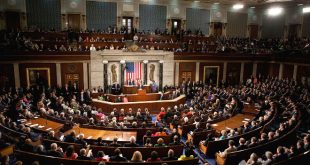Defending her right not to make custom flower arrangements for homosexual “weddings,” Christian florist Barronelle Stutzman, owner of Arlene’s Flowers in Washington, took her fight all the way to the U.S. Supreme Court. Her state’s highest court had ruled against her, and the Supreme Court sent the case back and ordered the court to reconsider it in light of its ruling in a similar case.
Christian baker Jack Phillips, owner of Masterpiece Cakeshop in Colorado, declined to make a custom “wedding” cake for homosexuals and ended up in the Supreme Court. The so-called Colorado Civil Rights Commission ruled against Phillips, but the Supreme Court ruled in his favor, contending that the commission treated him unfairly and showed hostility toward his faith.
What the government has done to Stutzman is particularly egregious. Washington’s attorney general went after her personally. So did the so-called American Civil Liberties Union. Losing the case risked not just her livelihood but her life savings. Stutzman considered the homosexual who’d complained about her a friend, and he certainly knew she was a Christian who believes homosexuality is a sin.
The Washington Supreme Court did reconsider Stutzman’s case but ruled against her once again. The court said her case was different from Phillips’s. From Stutzman’s legal counsel, Alliance Defending Freedom (emphasis and note added):
Washington’s highest court confined the Masterpiece Cakeshop decision by saying that the U.S. Supreme Court’s condemnation of government hostility toward religion applies only to “adjudicatory bodies” [Colorado Civil Rights Commission] and does not apply to executive-branch officials like the Washington attorney general. As ADF attorneys explain in their petition in Arlene’s Flowers v. State of Washington and Arlene’s Flowers v. Ingersoll, other court decisions say the exact opposite.
…
In addition to giving the Washington attorney general a pass for religious hostility because he is not a judge, the Washington Supreme Court opinion did not address anything that Masterpiece Cakeshop—and other recent U.S. Supreme Court decisions, including National Institute of Family and Life Advocates v. Becerra and Janus v. American Federation of State, County, and Municipal Employees, Council 31—had to say about free speech and expression, ADF attorneys point out. As the petition explains, those opinions provide strong support for Stutzman’s claim that states can’t force creative professionals who serve everyone to participate in and celebrate sacred events that violate their faith.
Stutzman has asked the Supreme Court to hear the merits of her case.
The high court could have made things easier for all Christian business owners had it issued a broader ruling in the Masterpiece case. The narrow ruling focused on the commission’s lack of neutrality toward Phillips, and not whether religious business owners in general can decline, without government retaliation, services they find objectionable.
 CURE News and Clergy Blog News and Commentary for Christians
CURE News and Clergy Blog News and Commentary for Christians



